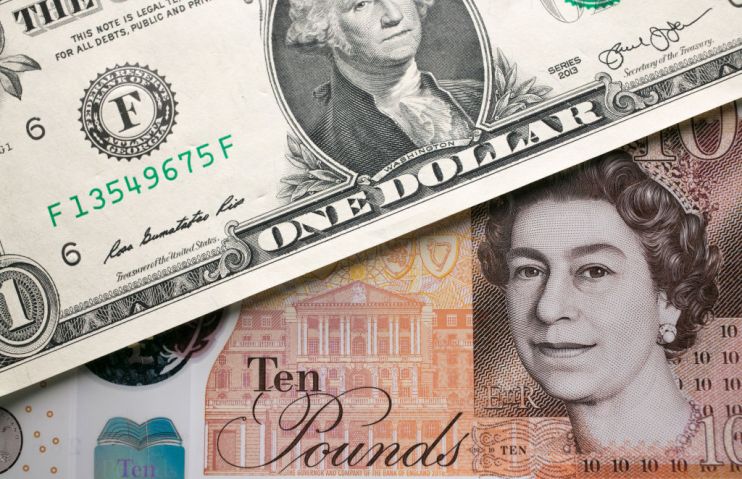Pound on crash course to record low against US dollar

The pound is on course to plunge to a record low against the US dollar driven by the UK tumbling into a tough recession, City economists warned today.
Sterling will drop to $1.05 by the middle of next year, but could fall close to parity with the greenback, according to consultancy Capital Economics.
The downbeat projection underscores the fragility of the UK economy.
A historic inflation surge fuelled by global gas prices surging to record highs is expected to deal the toughest shock to UK living standards on record.
That spending power hit will trigger a sharper recession in the UK compared to its international counterparts, prompting investors to ditch sterling-based assets, Capital Economics said.
Pound to plumb new lows

Paul Dales, chief UK economist at the consultancy, said he thinks “the UK has [already] fallen into recession, while the US may avoid one.”
“If anything, the recent surge in UK wholesale gas prices suggests that the risks are tilted towards a deeper and longer recession in the UK,” he added.
Investors have flowed into the dollar to capitalise on the US Federal Reserve’s rapid interest rate hike cycle and protect themselves from the global economic slowdown, heaping further woe onto the pound.
Ratings agency Moody’s today slashed its 2022 and 2023 G20 GDP growth forecasts by six and eight percentage points respectively.
While the Bank of England has hiked rates to 1.75 per cent from 0.1 per cent, the Fed has lifted them 225 basis points since March and is expected to launch a third successive 75 basis point rise on 21 September.
A weaker pound will put upward pressure on inflation – already running at a 40-year high of 10.1 per cent – by making it more expensive for the UK to import products.
Yields on UK government debt have also surged in recent weeks, making it more costly for the country to finance its trade deficit.
The UK imports a greater volume of goods and services than it produces, causing the pound “to behave more like a risky asset than a safe haven,” Dales added.
Britain is expected to tip into a 15-month long recession from the end of this year, the longest slump since the financial crisis.
Fears over the looming downturn and the 80 per cent rise in energy bills in October pushed UK consumer confidence down nine points over the last month, the steepest drop since the early days of the Covid-19 crisis, Bank of America said today.